Appetizing Anthropocentrism
Review of Michael Pollan, The Omnivore’s Dilemma: A Natural History of Four Meals
DOI:
https://doi.org/10.52537/humanimalia.10117Abstract
Downloads
References
Cox, J. Robert. Environmental communication and the public sphere. Thousand Oaks, CA: Sage, 2006.
Davis, Stephen L. “The least harm principle may require that humans consume a diet containing large herbivores, not a vegan diet.” Journal of Agricultural and Environmental Ethics 16:4 (July 2003). 387-394.
Derrida, Jacques. For what tomorrow: A dialogue (cultural memory in the present) (J. Fort, trans.). Stanford, CA: Stanford UP, 2004. Francione, Gary L., Rain without thunder: The ideology of the animal rights movement.Philadelphia: Temple UP, 1996. Freeman, Carie Packwood. Struggling for ideological integrity in the social movement framing process: How U.S. animal rights organizations frame values and ethical ideology in food advocacy communication. (Doctoral dissertation, University of Oregon, 2008). Dissertation Abstracts International, AAT 3325661.
Hall, Lee. Capers in the churchyard: Animal rights activism in the age of terror. Darien, CT: Nectar Bat Press, 2006.
Jensen, Derrick. A language older than words. White River Junction, VT: Chelsea Green, 2004.
Kingsolver, Barbara. Animal, vegetable, miracle: A year of food life. New York: Harper Collins, 2007.
LaVeck, James. “Compassion for sale? Doublethink Meets Doublefeel as Happy Meat Comes of Age.” Satya (September 2006). 8-11.
Mason, Jim. An unnatural order: Why we are destroying the animals and each other. New York: Continuum, 1997.
Matheny, Gaverick. “Least harm: A defense of vegetarianism from Steven Davis’s omnivorous proposal.” Journal of Agricultural and Environmental Ethics, 16 (2003). 505-511.
McKibben, Bill. Deep economy: Economics as if the world mattered. Oxford: One World Publications. 2007.
Regan, Tom, The case for animal rights. Berkeley, CA: U of California P. 1983. _____. “How to worry about endangered species.” In D. Schmidtz & E. Willott (Eds.), Environmental ethics: What really matters, what really works. New York: Oxford UP, 2002. 105-108.
Schlosser, Eric. Fast food nation: The dark side of the all-American meal. Boston: Houghton Mifflin, 2001.
Scully, Matthew. Dominion: The power of man, the suffering of animals, and the call to mercy. New York: St. Martin’s Griffin, 2002.
Singer, Peter. Animal liberation (2nd ed. Rev.). London: Random House, 1990.
Singer, Peter & Jim Mason. The ethics of what we eat: Why our food choices matter. Emmaus, PA: Rodale, 2006.

Published
Issue
Section
License

This work is licensed under a Creative Commons Attribution-NonCommercial 4.0 International License.









